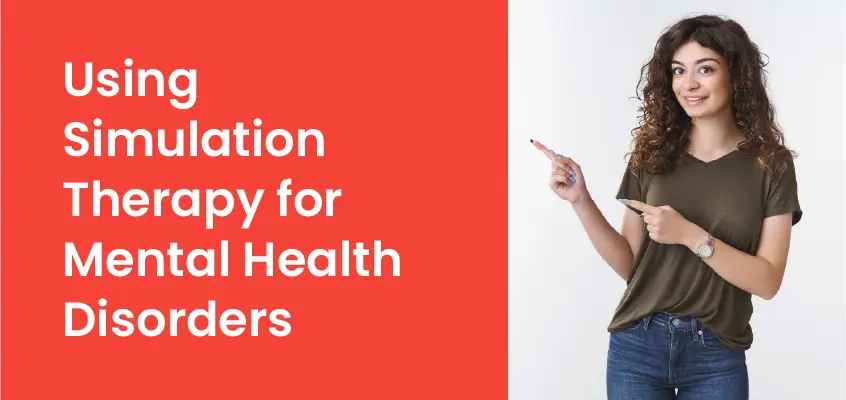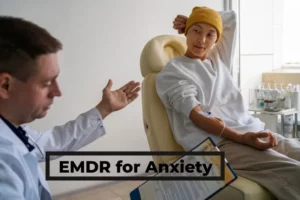Introduction
When it comes to therapy, many different options are available. If you’re struggling with anxiety or depression, you might have heard of simulation therapy as a potential treatment option. This procedure has gradually gained popularity among clinical psychologists and therapists and has become a viable option for dealing with mental health issues.
Gaining clarity about simulation therapy can help decide whether it is worth using to alleviate the symptoms of a mental disorder. What is simulation therapy, and how does it work? This article will briefly introduce simulation therapy and how it can help people struggling with mental health issues.
What is simulation therapy?
Simulation therapy is a type of therapy that uses critical preparation steps before radiation treatments, simulations or reenactments to help patients work through their issues. It can treat various topics, including post-traumatic stress disorder (PTSD), anxiety disorders, and phobias.
It is an effective treatment for PTSD, and studies have shown that most patients who undergo simulation therapy no longer meet PTSD treatment criteria. Simulation therapy has also been effective in treating anxiety disorders and phobias. A study of patients with arachnophobia, or the fear of spiders, found that those who underwent simulation therapy had a significantly lower fear of spiders than those who did not receive treatment.
Simulation therapy can be an effective treatment for many different types of mental health issues. Talk to a mental health professional if you are struggling with a problem that you think could be helped by stimulation therapy. One of the best aspects of simulation therapy is that there are no downsides to it. The worst-case scenario could be that the therapy does not turn out to be as effective as one would have imagined. Then again, this is a rare scenario, and there is no harm in giving it a shot.
Importance of simulation therapy
Simulation therapy is essential because it can help people learn how to cope with difficult situations in a safe and controlled environment. The bolder approach of forcing one into doing things they are afraid of, hoping that the fear will disappear, is an unscientific and unhealthy way to deal with mental health issues. The value of a trained mental health professional in a room with a person with a phobia or PTSD should not be undermined.
The human brain is powerful, so reenactments and simulations can be widely effective in dealing with issues concerning one’s psyche. Simulation therapy is about rewiring our brains to visit past traumas in a controlled environment to try and negate their effects.
Mental disorders, treatment and simulation therapy
Simulation therapy can effectively help treat several mental health issues, such as anxiety, depression and PTSD. If left untreated, anxiety and depression can be crippling and interfere with the individual’s daily life. While there are many clinically proven approaches for treating those diagnosed with anxiety and PTSD, it is widely acknowledged that it is among the most effective solutions for these disorders.
It helps in reducing medical treatment-related anxiety, e.g. radiation for cancer patients.
Simulation therapy helps reduce medical treatment-related anxiety, e.g. fear of radiation for cancer patients.
What are the benefits of simulation therapy?
Simulation therapy is a type of therapy that uses simulations or reenactments to help people learn new skills or practice ones they already have. It can be used to treat anxiety, phobias, and PTSD, and it can also be used to help people with autism spectrum disorder (ASD) learn social skills.
Simulation Therapy can help people with anxiety disorders by teaching them new skills to cope with their anxiety. It can also help people with PTSD by allowing them to re-experience their trauma in a safe and controlled environment. Additionally, it can be helpful for people with ASD by teaching them social skills they may otherwise struggle to learn.
It helps in reducing medical treatment-related anxiety, e.g. radiation for cancer patients.
How to find a simulation therapist
Finding a simulation therapist can be daunting, but there are a few ways to go about it. One way is to ask your regular therapist if they know of any simulation therapists in your area. Another way is to do a Google search for simulation therapists.
Once you’ve found a few potential therapists, it’s essential to research and make sure they’re a good fit for you. Read their bios and check out their websites to learn more about their approaches to therapy. Testimonials are a great way to determine if a simulation therapist will work for you.
If unsure, you can always contact the therapist and ask questions. Finding someone you feel comfortable with and who can help you achieve your goals is essential.
United We Care is an online platform dedicated to helping people manage their mental health. The trained therapists part of our team is well-versed in all the measures available, and they deal with mental health concerns among individuals of all ages. Contact us today to learn about our services and how we have helped thousands.
Conclusion
Simulation therapy is an increasingly popular treatment for various mental health conditions. While yoga and meditation certainly help, they do not offer the clinical effects that it provides. In contrast, much research is to be done in this area. Still, the preliminary evidence suggests that it can effectively treat anxiety and PTSD.
If you are struggling with mental health issues, it may be worth considering it as a potential treatment option. Remember, the therapy will only work if you consult an experienced therapist who knows what they are doing. United We Care ensures everyone gets equal access to dependable mental health professionals. Contact us today!










